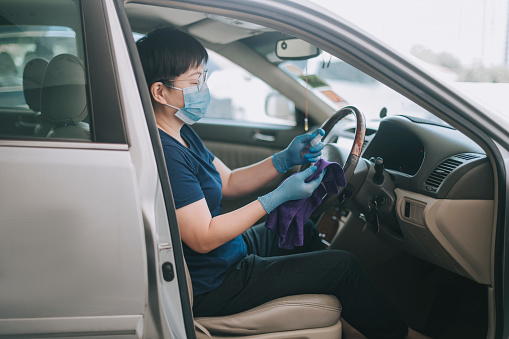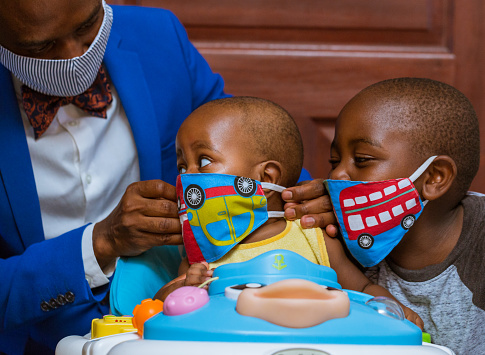Tech Nuggets with Technology: This Blog provides you the content regarding the latest technology which includes gadjets,softwares,laptops,mobiles etc
Sunday, August 2, 2020
Microsoft Confirms Talks to Buy TikTok US Arm After Discussion With Trump
Northern Coalfields Ltd Recruitment 2020 – Apply Online for 2012 Apprentice, Foreman & Technician Posts
Flipkart may consolidate Walmart's wholesale ops
ET Explains: Making internet majors pay for news content they make money from
Pompeo says U.S. may take action against TikTok and other Chinese tech companies “shortly”
Days after President Donald Trump announced he could use an executive order to ban TikTok from the United States, Secretary of State Michael Pompeo said the administration is “closing in on a solution and I think you’ll see the president’s announcement shortly.”
In an interview on Fox News’ “Sunday Morning Futures” host Maria Bartiromo, Pompeo also said that the Trump administration may take action against other Chinese tech companies doing business in the U.S., claiming that some are “feeding data directly to the Chinese Communist Party.”
Beijing-based ByteDance, TikTok’s owner, is currently in talks with Microsoft to sell its TikTok business in the U.S. and several other countries to the American tech giant. The negotiations have taken on more urgency over the last two weeks as the Trump administration issued more statements about TikTok.
Microsoft said on Sunday that it is in discussions to buy TikTok’s operations in the U.S., Canada, Australia and New Zealand by September 15, and that its chief executive officer, Satya Nadella had talked to Trump about the president’s security concerns.
Reuters reported last week that ByteDance will completely relinquish control to Microsoft, even though it had previously wanted to hold onto a minority stake in the U.S. TikTok business.
Notably, Microsoft didn’t mention India in its statement, even though TikTok was banned there in June, along with 58 other apps developed by Chinese companies that the Indian government deemed potential threats to national security.
Treasury Secretary Steven Mnuchin confirmed last Wednesday that TikTok is under review by the Committee on Foreign Investment in the U.S. (CFIUS). The CFIUS is already investigating whether ByteDance’s acquisition of Musical.ly in 2018, which it merged with TikTok, constitutes a national security threat.
When asked by Bartiromo if a sale would be enough to placate the U.S. government, Pompeo said the Trump administration would “make sure that everything we have done drives us as close to zero risk for the American people.”
But several Republican lawmakers have said that a sale would not be enough. Marc Rubio, chairman of the Senate Intelligence Committee, told the Financial Times last week that TikTok still needs to answer questions about where its data is store and how it is protected.
“Until TikTok’s owners—regardless of who that might be—can answer these basic questions and get its story straight, I remain concerned about the company’s activities and reported ties to China,” Rubio said.
Beyond TikTok
The day before Pompeo’s Fox News interview, White House trade adviser Peter Navarro told Fox News that the Trump administration is also reviewing “any kind of software that sends the information for Americans back to servers in China.”
Pompeo also suggested that the U.S. government may take action against more Chinese technology companies.
“These Chinese software companies doing business in the United States, whether it’s TikTok or WeChat—there are countless more, as Peter Navarro said, are feeding data directly to the Chinese Communist Party, their national security apparatus, could be their facial recognition pattern, information about their residence, their phone numbers, their friends,” he alleged.
Pompeo added that Trump will “take action in the coming days with respect to a broad array of national security risks that are presented by software connected to the Chinese Communist Party,” but did not elaborate on what that will entail or what companies might be affected.
But one of them may be WeChat, owned by Tencent. The U.S. government said last month that it may restrict WeChat in America, even though the version of WeChat available in the U.S. has far less features than the one in China, where it is used for payments, bookings e-commerce and other functions in addition to messaging.
While WeChat is ubiquitous in China, its user base in the U.S. is much smaller, and it is primarily used by members of the Chinese diaspora and foreign businesses that have operations or a connection in China.
Trump to give TikTok's Chinese owner 45 days to agree sale: Sources
Chinese app firms quizzed on data sharing, political ties
Microsoft confirms talks seeking to buy US arm of TikTok
Sources: behind TikTok's progress toward making a Microsoft deal, with weeks of talks that included US officials, nearly derailed by Trump's public opposition (Wall Street Journal)
Wall Street Journal:
Sources: behind TikTok's progress toward making a Microsoft deal, with weeks of talks that included US officials, nearly derailed by Trump's public opposition — Covert talks began weeks ago. After the software giant's CEO and Trump spoke Sunday, Microsoft said an agreement could include …
Google Pixel 4a Set to Launch Today: Expected Price, Specifications
Google debuts a Chrome extension to show how many ads are loaded on a web page, what advertisers are involved, and what user data was used for personalized ads (Catalin Cimpanu/ZDNet)
Catalin Cimpanu / ZDNet:
Google debuts a Chrome extension to show how many ads are loaded on a web page, what advertisers are involved, and what user data was used for personalized ads — Google has taken new steps towards its grand master plan to revamp the online advertising ecosystem.
Profile of Twitter hack mastermind Graham Clark, a troubled teen who allegedly went from scamming on Minecraft to joining hacker forum OGUsers and SIM swapping (New York Times)
New York Times:
Profile of Twitter hack mastermind Graham Clark, a troubled teen who allegedly went from scamming on Minecraft to joining hacker forum OGUsers and SIM swapping — The teenage “mastermind” of the recent Twitter breach, who had a difficult family life, poured his energy into video games and cryptocurrency.
It looks like Sequoia has hired a second partner in Europe: Revolut product lead George Robson
Silicon Valley venture capital firm Sequoia Capital recently set up shop in Europe after hiring Luciana Lixandru away from Accel’s London office. Now, according to a tweet by Revolut product lead George Robson, the VC has recruited a second European partner.
Robson, who also previously co-founded Kickstart London, a student-run accelerator programme in the U.K. and has worked at Morgan Stanley as an analyst, announced via Twitter last week that he has joined Sequoia’s burgeoning European operation where he says he’ll be working with the team “to help founders across Europe build the next generation of transformative companies”.
Writes Robson: “After ~3 years at Revolut working with some of the brightest minds building the world’s first truly global financial super-app, it’s time for my next move. I’m excited to share that I will be joining Sequoia as a Partner in Europe in late August”. In a second tweet, he adds that there is “more opportunity and innovation [in Europe] than ever”.
After ~3 years at @RevolutApp working with some of the brightest minds building the world's first truly global financial super-app, it’s time for my next move. I’m excited to share that I will be joining @sequoia as a Partner in Europe in late August. #FirstTweet
— George Robson (@_georgerobson) July 29, 2020
At Revolut, Robson was the product owner for Revolut Premium, the neobank’s paid-for bank account. Describing himself on LinkedIn as the first hire into Revolut’s subscription product team, he says he recruited for and managed multiple functions across product & engineering, product marketing and strategic partnerships.
He is said to also have been responsible for the roadmap delivery for Revolut’s retail plans, including the launch of “Revolut Metal”, and multiple third-party integrations including concierge, smart travel, insurance and gifting features.
Meanwhile, as mentioned, Robson adds to Sequoia’s first European partner recruit. Lixandru was poached from Accel and is best-known for leading the firm’s Series A in UiPath, and also worked with Deliveroo, Miro, and Tessian, amongst other successful upstart companies in Europe.
AI is struggling to adjust to 2020
2020 has made every industry reimagine how to move forward in light of COVID-19: civil rights movements, an election year and countless other big news moments. On a human level, we’ve had to adjust to a new way of living. We’ve started to accept these changes and figure out how to live our lives under these new pandemic rules. While humans settle in, AI is struggling to keep up.
The issue with AI training in 2020 is that, all of a sudden, we’ve changed our social and cultural norms. The truths that we have taught these algorithms are often no longer actually true. With visual AI specifically, we’re asking it to immediately interpret the new way we live with updated context that it doesn’t have yet.
Algorithms are still adjusting to new visual queues and trying to understand how to accurately identify them. As visual AI catches up, we also need a renewed importance on routine updates in the AI training process so inaccurate training datasets and preexisting open-source models can be corrected.
Computer vision models are struggling to appropriately tag depictions of the new scenes or situations we find ourselves in during the COVID-19 era. Categories have shifted. For example, say there’s an image of a father working at home while his son is playing. AI is still categorizing it as “leisure” or “relaxation.” It is not identifying this as ‘”work” or “office,” despite the fact that working with your kids next to you is the very common reality for many families during this time.

Image Credits: Westend61/Getty Images
On a more technical level, we physically have different pixel depictions of our world. At Getty Images, we’ve been training AI to “see.” This means algorithms can identify images and categorize them based on the pixel makeup of that image and decide what it includes. Rapidly changing how we go about our daily lives means that we’re also shifting what a category or tag (such as “cleaning”) entails.
Think of it this way — cleaning may now include wiping down surfaces that already visually appear clean. Algorithms have been previously taught that to depict cleaning, there needs to be a mess. Now, this looks very different. Our systems have to be retrained to account for these redefined category parameters.
This relates on a smaller scale as well. Someone could be grabbing a door knob with a small wipe or cleaning their steering wheel while sitting in their car. What was once a trivial detail now holds importance as people try to stay safe. We need to catch these small nuances so it’s tagged appropriately. Then AI can start to understand our world in 2020 and produce accurate outputs.

Image Credits: Chee Gin Tan/Getty Images
Another issue for AI right now is that machine learning algorithms are still trying to understand how to identify and categorize faces with masks. Faces are being detected as solely the top half of the face, or as two faces — one with the mask and a second of only the eyes. This creates inconsistencies and inhibits accurate usage of face detection models.
One path forward is to retrain algorithms to perform better when given solely the top portion of the face (above the mask). The mask problem is similar to classic face detection challenges such as someone wearing sunglasses or detecting the face of someone in profile. Now masks are commonplace as well.

Image Credits: Rodger Shija/EyeEm/Getty Images
What this shows us is that computer vision models still have a long way to go before truly being able to “see” in our ever-evolving social landscape. The way to counter this is to build robust datasets. Then, we can train computer vision models to account for the myriad different ways a face may be obstructed or covered.
At this point, we’re expanding the parameters of what the algorithm sees as a face — be it a person wearing a mask at a grocery store, a nurse wearing a mask as part of their day-to-day job or a person covering their face for religious reasons.
As we create the content needed to build these robust datasets, we should be aware of potentially increased unintentional bias. While some bias will always exist within AI, we now see imbalanced datasets depicting our new normal. For example, we are seeing more images of white people wearing masks than other ethnicities.
This may be the result of strict stay-at-home orders where photographers have limited access to communities other than their own and are unable to diversify their subjects. It may be due to the ethnicity of the photographers choosing to shoot this subject matter. Or, due to the level of impact COVID-19 has had on different regions. Regardless of the reason, having this imbalance will lead to algorithms being able to more accurately detect a white person wearing a mask than any other race or ethnicity.
Data scientists and those who build products with models have an increased responsibility to check for the accuracy of models in light of shifts in social norms. Routine checks and updates to training data and models are key to ensuring quality and robustness of models — now more than ever. If outputs are inaccurate, data scientists can quickly identify them and course correct.
It’s also worth mentioning that our current way of living is here to stay for the foreseeable future. Because of this, we must be cautious about the open-source datasets we’re leveraging for training purposes. Datasets that can be altered, should. Open-source models that cannot be altered need to have a disclaimer so it’s clear what projects might be negatively impacted from the outdated training data.
Identifying the new context we’re asking the system to understand is the first step toward moving visual AI forward. Then we need more content. More depictions of the world around us — and the diverse perspectives of it. As we’re amassing this new content, take stock of new potential biases and ways to retrain existing open-source datasets. We all have to monitor for inconsistencies and inaccuracies. Persistence and dedication to retraining computer vision models is how we’ll bring AI into 2020.
Sources: after five Thinking Machines staff left, investors are rattled, potentially impacting fundraising; two researchers quit via Slack during an all-hands (The Information)
The Information : Sources: after five Thinking Machines staff left, investors are rattled, potentially impacting fundraising; two researc...
-
http://bit.ly/2XqNIDz
-
Amrith Ramkumar / Wall Street Journal : An interview with White House OSTP Director Michael Kratsios, a Peter Thiel protégé confirmed by ...